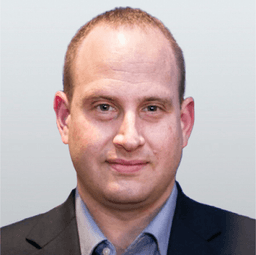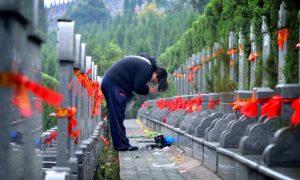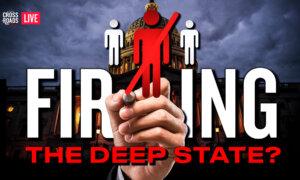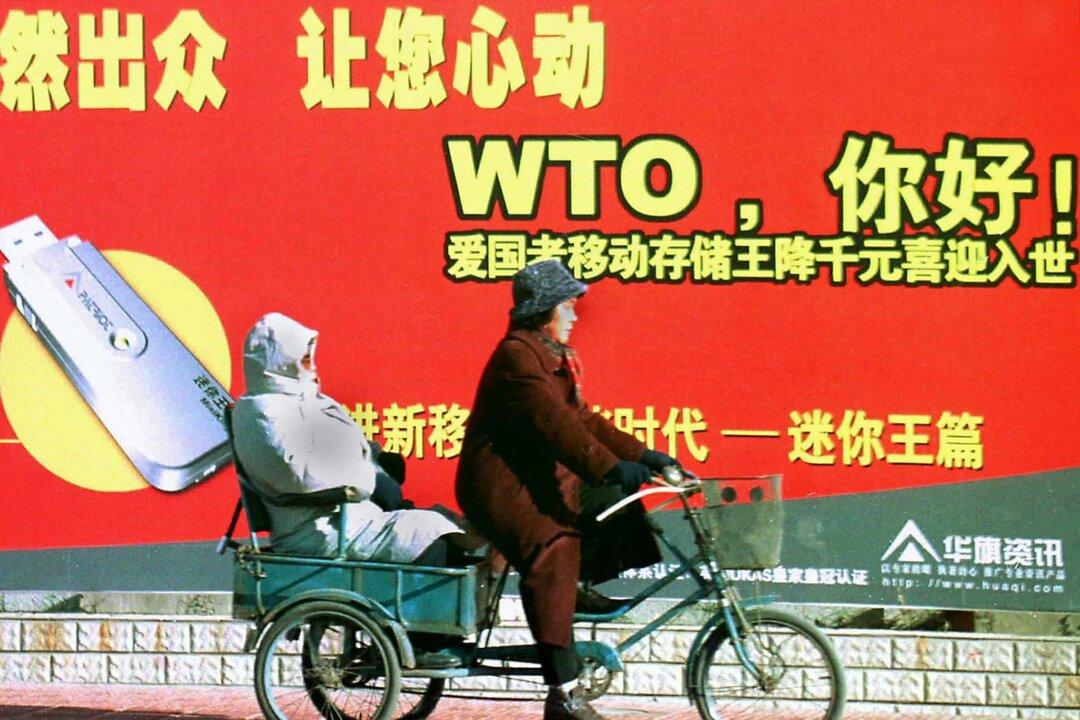Historical Patterns
The famous British television series from the 1980s “Yes Minister” and “Yes, Prime Minister” portray the ongoing struggles between the entrenched civil service and mediocre politicians. An example would be a conversation between the character Sir Humphrey, cabinet secretary and top civil servant, and Bernard, the prime minister’s naïve private secretary who needs constant instruction in the ways of obfuscating politicians:Substitute “American” for “British,” and one can see that the ongoing power struggle between elected officials and the permanent bureaucracy and its affiliates in society has been going on since long before they were called the “deep state.”
Actually, it seems to be a price that nations have paid again and again for the centralization of power.
In ancient Rome, Caesar and later emperors took over rule from the Senate and established a Praetorian Guard to guard their interests. Later on, this guard took it upon itself to make sure the “right” emperor was chosen, and that once chosen, he ruled in the “right” way, or else.
After the disintegration of the Roman Empire, during the Middle Ages, in feudal society, there were tiers upon tiers of junior and senior nobility, each running his own fiefdom and beholden both to his lord and, in a way, to his immediate vassals. It didn’t take that many people to run such a fiefdom. Power was decentralized.
Later on, in certain countries such as France and England, the kings began centralizing power in the capital cities of Paris and London. Power was wielded more effectively, and they became great kingdoms, at the expense of local lords and barons. Such centralized power needed a whole swath of officials to run. Thus, the bureaucracy was reborn and gradually became more and more powerful.
So kings had to delegate some of their unlimited God-given power to a bureaucracy to be able to rule vast lands and resources, and ensure the continuity of such rule. Other countries such as Germany and Italy only really unified and began centralizing in the 19th century.
Politicians Versus Civil Servants
Until not so long ago, politicians were the ones considered to be self-serving, corruptible, and looking down on their electorate. Whole genres in American culture are dedicated to lone honest cops, prosecutors, and other civil servants who expose and eliminate the corrupting influence of politicians and politics.Now, it seems, civil servants are assumed guilty, and politicians have regained the presumption of innocence.
Civil servants have become subject-matter experts, serve for decades, and ostensibly have the long-term view. They view politicians as unqualified, short-sighted, and self-interested people who come and go.
In contrast, politicians view civil servants as entrenched bureaucrats who think they always know better and who want nothing to ever change, except in the interests of increasing their kingdoms and power.
The Unit of Measure
Take, for example, the FBI and Department of Justice. They have recently been criticized for seemingly taking a very heavy-handed approach toward some people and groups, while being very lenient with others and allegedly covering up for the prominent politicians in the ruling party. At the same time, the same FBI and DOJ, and sometimes the same people, have also recently been very aggressive in going after and exposing the crimes of the Chinese Communist Party (CCP) in the United States—the stealing of military and industrial secrets, transnational repression, et cetera.Some politicians, too, have enacted policies that seem intended to break down the building blocks of society, while, at the same time, to use the previous example, they are united in a bipartisan manner to expose and push against the CCP.
In the past, people were wary of passing judgment on someone while he or she was still alive, or likewise naming something after him or her, for fear that later in life the person would do something bad.
It seems to me that the main unit of assessment should be the individual, rather than institutions, and single issues, rather than the whole person or institution. That is, “On this subject, this person made the right choice, but on that one, she didn’t.”
The Burden of Responsibility
It is written in the Bible, “For unto whomsoever much is given, of him shall be much required.” In this sense, whether politicians or civil servants, or elites in general, their outsized power and influence make their decisions crucial, since a country, agency, or institution, by decree of its leadership, goes in a certain direction and benefits or implicates all the people in it, perhaps except those who resist as much as they can. But it is not easy to resist the strong currents of society.This is why the Tuidang movement in China, for example, is so important. Hundreds of millions of Chinese people have renounced their membership in the CCP and its affiliated organizations over the past 20 years, securing their future when the CCP falls. CCP leaders these days could, if they wanted to, do the right thing, and the party would fall in a day. But it seems like they fear losing their power along with its demise.
Elites in society, to my mind, have a very important role to play. Whether cultural, intellectual, economic, or military, elected or not, inherited or not. They are the guardians of the culture and values, and they can set the direction in which society goes.
When such people abandon their responsibility or abuse it, collude together for money or power, or lack humility—believing they can and should play God—they hasten the crumbling of civilizations.
When they—civil servants, politicians, billionaires, and others—work together to do good, and follow universal values and cultural traditions, society can flourish.






